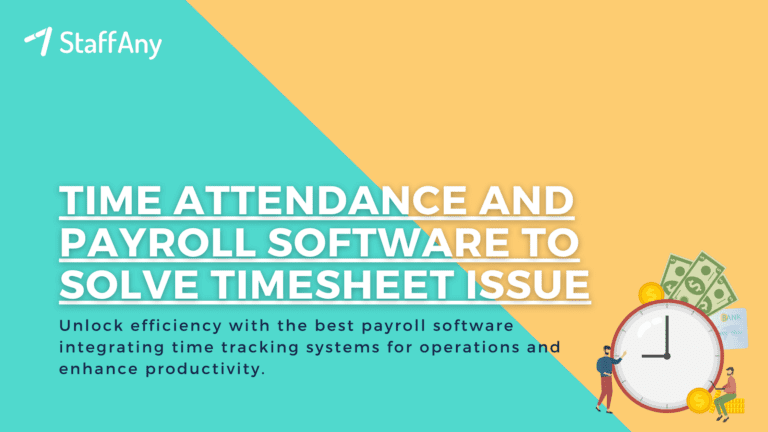What is Gross Salary?

Gross salary is the total amount of money an employee is paid before any deductions or adjustments are made. It is the full amount earned by an employee, including any bonuses, commissions, or overtime pay. Gross salary is used as the basis for calculating deductions such as taxes, social security, and health insurance, among others. The final amount an employee receives, after all these deductions, is known as net salary.
Read more: What Is An Employee Management System?
Various Components of Gross Salary
Gross salary is made up of several components, each of which contributes to the overall amount an employee is paid. However, the components may vary from one employer to another and may include additional items such as relocation allowances, performance-based bonuses, and more. Some of the most common components include:
1. Base Pay
Base pay is the foundation of an employee’s compensation package. It is the regular salary that an employee is paid for the work they perform and is usually set by the employer. The amount of base pay is determined based on factors such as the employee’s experience, qualifications, and the type of job performed. Base pay forms the bulk of an employee’s salary and is paid on a regular basis, such as bi-weekly or monthly.
2. Overtime Pay
For employees who work beyond their regular working hours, overtime pay is calculated as a set rate for each hour worked. This rate is typically higher than the employee’s regular hourly rate and is intended to compensate employees for the extra time and effort put in to perform their duties. Overtime pay can be a significant component of an employee’s gross salary, especially for those who frequently work beyond their regular hours.
3. Bonuses
Bonuses are extra pay received by an employee for achieving specific goals or milestones, such as reaching a sales quota, completing a project on time, or demonstrating exceptional performance. They are not a guaranteed part of an employee’s compensation package but are offered as an incentive to motivate employees. The amount of the bonus and the criteria for receiving it will vary depending on the employer and the nature of the work performed.
4. Commission
Commission is a payment made to employees who sell a company’s products or services. The amount of commission is usually based on a percentage of the sales made. This type of compensation is most commonly associated with sales positions, but it can be offered to other types of employees as well. Commission can be a significant component of an employee’s gross salary and can provide a strong motivation for employees to achieve their sales targets.
5. Allowances
Allowances are additional payments made to employees for expenses such as travel, housing, or car expenses. Allowances are intended to cover the costs associated with certain job requirements or to provide additional compensation for the performance of certain duties. For example, a travel allowance may be provided to cover the cost of travel expenses incurred while performing job duties, while a housing allowance may be provided to help cover the cost of housing in a high-cost area.
Read more: Understanding Manpower Planning and Its Importance in F&B
How to Calculate Gross Annual Income
For salaried employees, calculating gross income for a year can be done by multiplying a person’s gross monthly income with the number of that person’s working months within a year. So if a person’s gross monthly income is 7.000 MYR and that person has been working for 12 months in a year, then this person’s gross annual salary will be 84.000 MYR.
What is Net Salary?

Net salary, also known as take-home pay, is the amount of money an employee receives after deductions such as taxes and health insurance, have been made. Deductions may also include contributions to a retirement plan and other voluntary deductions such as union dues or life insurance premiums.
Differences Between Gross Pay and Net Pay
Understanding the differences between gross salary and net salary can help employees better plan their finances and make informed decisions about their spending and saving habits. The following are some of the key differences between gross pay and net pay:
1. Total Compensation
Gross pay represents the complete package of compensation an employee receives for their work, which includes not only their base salary but also any bonuses, commissions, or other forms of compensation. In contrast, net pay takes into account the deductions made from the gross pay, giving employees a clear picture of what they can expect to take home after taxes and other deductions have been made.
2. Tax Implications
Gross pay is subject to a variety of tax obligations including state income tax and many more. These taxes are deducted from an employee’s gross pay to determine their net pay.
3. Deductions
Gross pay does not reflect the deductions that are made from an employee’s salary, such as contributions to a retirement plan and health insurance. Net pay, however, includes these deductions, providing a clearer picture of the amount of money an employee will have available for daily expenses and saving.
4. Budgeting
Gross pay is often used as the basis for budgeting, as it represents the total amount of money an employee is compensated for their work. Net pay, on the other hand, is the amount of money an employee actually takes home and is available for daily expenses and saving.
5. Paycheck
Gross pay is the amount of money that is listed on an employee’s paycheck before any deductions are made. Meanwhile, net pay is the amount of money that is actually deposited into an employee’s bank account after all deductions have been made.
Read more: HR Management Softwares, Privilege or Necessity
Understanding what a gross salary is and its components are important for both employers and employees. Also, by knowing the differences between gross and net pay, employers and employees can better plan their finances and make informed decisions about compensation packages.
Streamline your payroll and cost control with StaffAny’s smart timesheet! Our advanced system offers automated payroll accuracy, efficient cost control, centralised record-keeping across multiple locations, improved trust and communication, and reduced hours discrepancies. Say goodbye to manual timesheet headaches and hello to accurate, real-time data. Sign up for StaffAny today and experience the difference in automated employee timesheet management!











